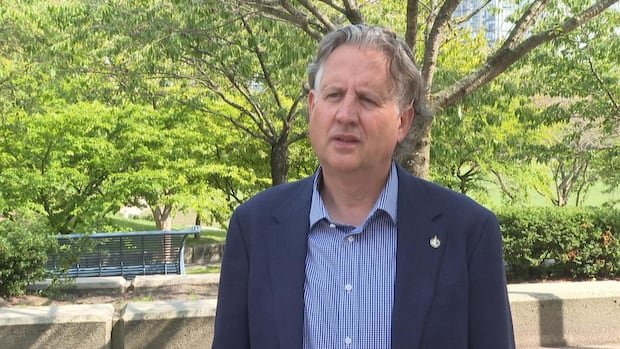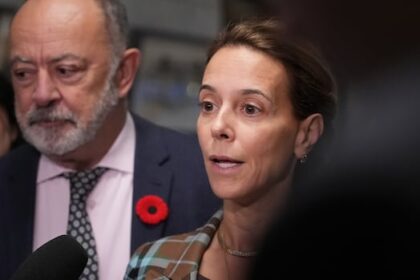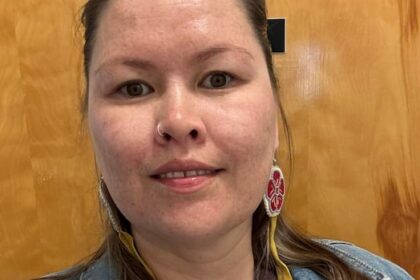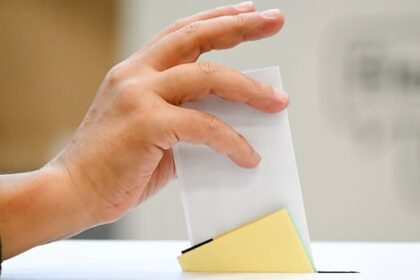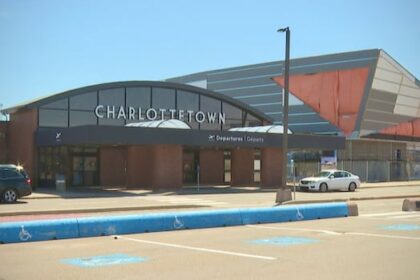British ColumbiaReferendums for voter reform have been held — and not passed — in Vancouver. Now, the city’s former mayor Kennedy Stewart is bringing the issue forward for a legal challenge.Group argues the at-large voting system does not lead to fair representation for minoritiesMichelle Gomez · CBC News · Posted: Sep 21, 2025 4:47 PM EDT | Last Updated: 2 hours agoFormer Vancouver mayor Kennedy Stewart is leading a legal challenge of B.C.’s municipal electoral system. (Sohrab Sandhu/CBC)A group led by former Vancouver Mayor Kennedy Stewart will challenge the province’s municipal voting system in court, arguing it is unconstitutional and does not lead to fair representation. Vancouver and most municipalities in B.C. run elections based on an at-large system, where residents vote for all councillors who are elected to represent the entire city. “There’s a huge problem with the at-large system and we want the courts to strike it down,” Stewart said. The group, Fix City Hall, plans to petition the courts to force the provincial government to abolish at-large elections for big cities in the province, such as Metro Vancouver cities, Kelowna, and Kamloops, among others. If successful, it would be up to the province to determine which system would replace at-large voting. WATCH | Kennedy Stewart behind electoral reform lawsuit: B.C.’s municipal voting system isn’t fair, proposed lawsuit arguesA group of former B.C. politicians is preparing to challenge the province’s municipal voting system in court, arguing it is unconstitutional and does not lead to fair representation. The group, called Fix City Hall, is being led by former Vancouver mayor Kennedy Stewart. And as Sohrab Sandhu reports, there have been many attempts to overhaul the system before, but this could be the first time it’s being challenged in court.Stewart says any system, such as single transferrable vote or the ward system, would be better than the current one. He says the current system results in little representation for minority groups. “No electoral system is perfect, they all have their problems, but the at-large system is the worst one that you could imagine,” Stewart said. “We think it’s unconstitutional.” Electoral reform failedSeveral attempts have been made in the past to bring electoral change in Vancouver, but this is believed to be the first time the system has been challenged in court. Most recently, a referendum was held in 2004 to introduce the ward system, where councillors are elected to represent specific geographic areas. It was voted down by a margin of 54 per cent to 46 per cent. Stewart Prest, a lecturer in political science at the University of B.C., says he’s skeptical of the court challenge on electoral reform, and would prefer a referendum instead. (Jon Hernandez/CBC)Stewart Prest, a political science lecturer at the University of British Columbia, says most cities in Canada use a ward system, where councillors are elected to represent specific neighborhoods within a city. Ward-elected councillors are accountable to the specific neighborhood or community they represent, while at-large-elected councillors are accountable to the city as a whole, Prest said. People are pictured in line at a voting station at Jessie Lee Elementary in Surrey, B.C., during the last municipal election. There are both upsides and downsides to an at-large system, according to Prest. (Ben Nelms/CBC)He said the at-large system can be positive, as councillors focus on big issues that affect everyone. But he says it also has its downsides. “Particular corners of the city are more likely to be overlooked if most councilors are coming from … the relatively well-to-do areas of the city, that’s often the case,” he said. “Then, more marginalized parts of the city become more marginalized as a result.” Prest says that the at-large system often leads to councillors focusing on bigger issues. (Justine Boulin/CBC)Prest remains skeptical about taking the issue to court, saying a referendum is a better option. “If we are constantly going to legal to decide our difficult political questions, we’re just going to politicize the legal system … and that is a bad place for democracies to be.” But Stewart says a court challenge is necessary in this case because holding a referendum for issues that affect minority groups can be ineffective. Lengthy ballotsRyan Campbell, with Fair Vote Canada — an organization that advocates for proportional representation in all levels of government elections — says voting in an at-large election can be an unpleasant voting experience. In Vancouver’s 2022 election, voters had to choose between more than 70 city council candidates. In Surrey, there were over 50. “That’s pretty annoying,” Campbell said. “Just being able to rank a few candidates and have my vote counted and be effective, I think would be an improvement.”Fix City Hall has also launched an online platform through which British Columbians can petition the province directly for change.Stewart says his group will launch the court challenge early next year.ABOUT THE AUTHORMichelle Gomez is a writer and reporter at CBC Vancouver. You can contact her at michelle.gomez@cbc.ca. With files from Sohrab Sandhu
Former Vancouver mayor to challenge B.C.’s voting system in court
